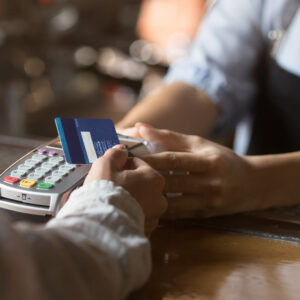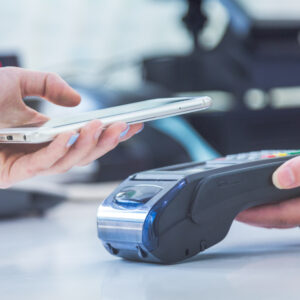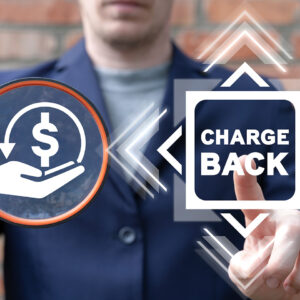Imagine stepping into a stadium at the peak of the sports season, and your smartphone immediately alerts you that a $30 premium seat upgrade is available for purchase right on your mobile device. As you settle into your fantastic new viewpoint to relish the height of the competition, you use your smartphone to order a pulled pork sandwich and imported beer, delivered directly to your seat. When your favorite player achieves a remarkable score, you utilize the team’s app to watch an instant replay from multiple angles and access an exclusive video feed featuring players on the sideline. Later, when you need to take a short break, the app smartly guides you to the closest restroom with the shortest wait time.
This isn’t a far-fetched futuristic stadium experience. It’s already available at some venues, and others are rushing as fast as they can to add next generation digital systems that will make attending a game in person an immersive, connected experience. And the cornerstone of many of these digital initiatives are digital payments.
The sports industry is fast-paced and stadiums need to keep up with the growing demands of their season ticket holding and most loyal fans. Fans have had it with long concession wait times and are willing to pay for more modern conveniences and experiences.
Ultimately, there is nothing more frustrating for a fan than missing a part of the game while they wait in line for a Sports franchises have responded to these frustrations by modernizing the ordering and delivery of food and beverages, aiming to improve the experience and keep fans coming back.
From Old School To New Cool
A host of various industry surveys support this data. A report from Juniper Research found that mobile ticketing is becoming mainstream in sports, with users predicted to spend $23 billion via mobile in 2023, up from $14 billion in 2019. According to the new research, Mobile & Online Ticketing: Transport, Events & Contactless 2019-2023, users of mobile ticketing will total 1.9 billion by 2023, up from 1.1 billion in 2019. This in turn is driven by increased usage of team mobile apps that drive overall engagement, both at the ballpark, or at home on the couch.
A Cashless, In-Seat Digital Experience
Consumers of all ages have become accustomed to the convenience of ordering food and beverages through cashless apps and kiosks, and this expectation is now extending to stadiums. According to a food and beverage survey conducted by Oracle, 68 percent of consumers were highly interested in using a mobile application to order food and beverage while at a sporting event, and 63 percent said they would use a self-service kiosk, mobile app, or tablet for purchases.
And over half (58 percent) also said they would spend even more if they didn’t have to wait in lines. Three out of four consumers said that in-seat delivery would improve their stadium experience. A similar figure said they would like to pick up an order from an express line at a concession stand if offered, implying it’s not an either/or situation. If in-seat delivery is difficult to implement, an express line is almost as good. In short, fans want flexibility so they have a more personalized, and streamlined, gameday experience, with the added benefit of not having to stop at an ATM prior to entering a ballpark.
The move to mobile has already been widely deployed throughout stadiums worldwide. Stadiums like BC Place in British Columbia, Canada. Stadium vendor Ready and software POS company Bypass are used to create such experiences. TIAA Bank Field, home of the NFL Jacksonville Jaguars, is offering a similar solution in conjunction with Bypass and credit card reader provider Clover. The stadium has installed more than 650 Clover terminals.
On a large scale, Levi’s Stadium in Santa Clara, California is upping its mobile ordering game. The venue, which hosted the Super Bowl in 2016, launched a mobile app that enables guests to place food and beverage orders and pick them up at express windows. Fans using the app can also have drinks delivered to their seats.
Several professional sports teams, such as the NFL Detroit Lions, have realized that mobile technology is essential for guests to enjoy their stadium experiences, and are enabling food ordering capabilities through team apps.
The Drivers
There are a multitude of reasons driving this transformation, but here are three of the most critical:
Demographics
The changing demographic of fans is one of the reasons stadiums are adding digital payment processing, providing a more engaging digital experience, and massively expanding/improving connectivity and Wi-Fi. Connectivity is especially important to younger fans, particularly those in college. At college games, fans often leave at halftime if they can’t connect to the internet or upload photos to social media. The professional leagues are taking notice of this phenomena and taking early action, before the college-age fans graduate and can better afford to attend professional games.
A Cisco report revealed that stadium internet is as important as air, water, food and shelter (enclosed/covered seats) to one in three college students and young professionals.
Speeding Up The Process
To be sure, the process toward things like digital tickets and cash-free concessions has been building in the stadium ecosystem for some time. In many such businesses like fast food and airlines, kiosks and mobile ordering systems have replaced talking to another human across a counter, perhaps with some loss of personality but with huge leaps in efficiency, safety and getting exactly what you ordered with much less waiting.
According to the Oracle report, nearly 30 percent of fans globally ranked being able to stay in their seats as the most important way to improve the food and beverage experience at the stadium.
What You Can Do When Everything’s Digital
From a venue owner’s or operator’s point of view, all-digital payments are a far superior choice, for many reasons. Beyond the streamlining of business processes that come with eliminating cash drawers comes better security, and faster and more accurate business data tracking.
An all-digital environment also allows teams and stadiums to more closely integrate loyalty programs and things like points with actual payments; it also gives fans an incentive or purpose to use a team or stadium app, something many fans have historically avoided.
From a fan’s point of view, the improvements in concessions technology should be sudden and noticeable. Already, we’ve seen forward-thinking venues like Sacramento’s Golden 1 Center and Denver’s Empower Field at Mile High take bold steps to reformat concessions with an eye toward grab-and-go functionality.
Ultimately, the transition to digital payments at sporting events is really about the transition to a digital, gameday experience that extends, or expands, the fan experience. Venue owners and franchises can no longer think of gameday as a moment in time. It’s on opportunity to engage fans before, during and after a game in a seamless manner. Implementing digital payment processing, in-seat delivery, mobile ticketing, etc., bolsters loyalty, which in turn can be leveraged to extend the experience. Franchises can offer coupons for both in-stadium venues and services, or alternatively, provide free wings at a venue owned restaurant outside the stadium after the game. This approach rewards fans, promotes venue products/services, and increases revenue.







